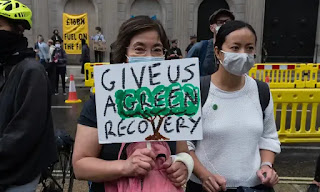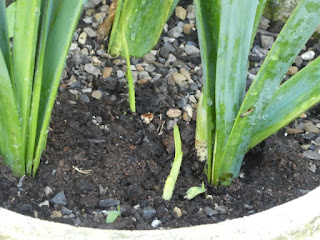My camera 📷 lay unloved in the cupboard today ☹️ I try and use it almost every day but today was my first full day home from hospital and I was weary. My visit had been very eventful for all the wrong reasons. I discovered I had a Pulmonary embolism a cyst and I even developed Pneumonia in there. Thank goodness I was in there! Photography to me is a very special therapy. It allows me to escape away from the trials and tribulations of everyday life, it’s pure escapism. I love slowing down and waiting whether it’s trying to get a photo of a bird out of the window, I have a wheelchair and there’s steps down to our garden so window photography it’s then for me. Heather gets me photos of the flowers she grows form. I play around with them, I just crop or convert to black and white. I don’t like photoshop as in my mind it’s messing up the photo.
musing ˈmjuːzɪŋ/ noun noun: musing; plural noun: musings 1. a period of reflection or thought. adjective adjective: musing 1. characterized by reflection or deep thought.
Just had a few days in the National Hospital for Neurology and Neurosurgery UCLH London
Sorry not been posting Multiple Sclerosis and life got in the way.
Article from The Guardian about Earth day
Today is Earth Day, which should provide us with an opportunity to pause and confront the awful predicament humanity faces. We eat microplastics, breathe pollution and watch other life-forms decline to extinction. We face intersecting poverty, health, climate and biodiversity crises. Our global predicament is that consumption by the wealthy is driving us towards planetary disaster, yet billions live in poverty and need to consume more to live well. In this cycle, any version of “success” only hastens catastrophe.
Solving this conundrum requires much more than merely reducing the impact of high-consumption lifestyles. Similarly, if we focus on increasing efficiency this tends to increase resource use: make cars cheaper to run and people drive more. The core of any response that truly rises to this challenge will be interlocking policies that drive society on to an equitable and sustainable path.
Here are four policies that work together to maximise people’s welfare and freedoms, drive essential technological innovation, and allow society to operate within Earth’s limits. At their heart is human dignity coupled with breaking the dynamic of ever-greater production and consumption. Together they could quickly reorient the doomsday machine that is today’s global economy.
The first policy is universal basic income (UBI) whereby a financial payment is made to every citizen, unconditionally, at a level above their subsistence needs. UBI is needed to break the link between work and consumption. Critically, there is a constant awareness that we all need to be ever more productive at work, otherwise someone else will take our job. In response we have all said: I work hard, so I deserve that fancy meal, new gadget or long-haul holiday. Increased consumption is the reward for being ever more productive at work. Indeed, it makes little sense to curb our consumption when we know we will have to be ever more productive at work, regardless of our choices.
Fears that UBI may lead to laziness are unfounded: small-scale trials of UBI show people work hard and are typically more entrepreneurial. Crucially, those UBI recipients had lower anxiety, stress and health problems. UBI allows people to say no to undesirable work, unless it is well-paid enough. People can also say yes to opportunities that often lie out of reach, as they can study or retrain. And clearly there is an immense amount of work to do, from caring for others, to producing what we all need to live well. With UBI we would increasingly choose work that we thought mattered, rather than working ever harder to consume ever more.
The second policy framework is what I call universal shared services – others have argued for universal basic services, but what’s needed must be far beyond basic. Many countries have some of these, from healthcare to education. These are the services everyone needs and their delivery has society-wide effects. Core are health, education, energy, housing and leisure services. Providing these universally lowers financial costs due to economies of scale, and can substantially lower environmental costs. Such universal services make societies more equal and drive them towards more sustainability if two further policies are enacted.
The third policy tackles the climate emergency via legally binding ever-declining carbon budgets. This framework exists in the UK, following the 2008 Climate Change Act. The government must reduce UK carbon emissions to within a carbon budget. These five-year budgets decline to a zero allocation by 2050. This act also created an independent statutory body that analyses data and advises the government on how to achieve each successive carbon budget. The advice results in new legislation for specific sectors and drives technological innovation as the zero emissions long-term destination is clear. As a result the UK is world-leading in reducing carbon emissions.
The fourth policy uses the same declining budget principle, but tackles material use rather than energy generation. Similarly, declining “plastic use budgets” can set society on a pathway to eliminating plastic pollution. The same principle can tackle metal use to limit the damage from mining. A budget for the total amount of land used to produce the food a country consumes can limit the footprint of agriculture, central to halting biodiversity loss. As with carbon emissions, scientists can now track the production and use of plastic, metal and food. Scientific monitoring and new “declining budget” policies could keep material use within Earth’s limits.
These four policy goals together would drive people’s welfare up and our environmental impacts down. They are not new, nor are they very radical. We already, for example, assure incomes for pensioners in many countries, healthcare is universal in a number of countries, and declining carbon budgets are being used to help drive today’s energy transition.
But how to pay for it? The first response of the powerful to change is to argue that the costs are too great. They rarely are. After two decades of arguments about the high costs of tackling climate change, consultants to big business McKinsey now report that the cost of Europe reaching net zero emissions by 2050 is itself net zero. The investments literally pay for themselves. Revenue-raising options should also help to implement the four policies more cheaply; these could include taxes on rentiers financial transactions, and high energy or material use. Of course, without pressure from popular protest movements and political parties, nothing will change.
Yet systemic thinking on how to respond to global problems is increasing. The Covid-19 pandemic has produced a new seriousness by graphically revealing that there actually is no “outside” of society or the environment. When there’s no such thing as “outside”, the neoliberal mantra of avoiding taxes and regulations to keep wealth to yourself makes less and less sense. With political pressure and smart policies a new universality that breaks with centuries of exploiting people and the environment could be within reach. This is undoubtedly a very tough task, but we can’t afford to fail.
Simon Lewis is professor of global change science at University College London and
“Courtesy of Guardian News & Media Ltd
IUniversity of Leeds
Flowers blooming bulbs growing
We have had loads of daffodils blooming for what seems an absolute age but as they start to recede other bulbs are appearing. First off it was the Snakes Head Frittilary and now it’s a question of what is going to be next? This is a voyage of discovery as a few weeks back we (Heather) planted 200 spring and summer bulbs.
Anyone see Kate Bradbury and her pond on Gardeners World tonight?
One of my guilty pleasures is Gardeners World, an hour of pure escapism on a Friday night. Being in a wheelchair 🦼 I can no longer garden as I would like but those of you who know me will remember my description of how Heather and I garden now : I supply the brains and Heather supplies the brawn. Heather is a reluctant gardener and I am a reluctant disabled man! Recently I bought a special offer from Sutton seeds of 200 summer bulbs 💡 as you can imagine Heather was delighted 😁 Well let’s get back to tonight’s edition of Gardeners World. Monty Don has taught me almost everything I know about gardening (not strictly true) and I try and watch Gardeners World whenever it is on.
Tonight’s episode (yesterday’s episode now 🤣) had Kate Bradbury on talking about her Brighton garden in lockdown. Kate is passionate about wildlife gardening and I can recommend her books as great places to discover the joy of gardening for wildlife. The first of her books I read was https://www.bloomsbury.com/uk/the-bumblebee-flies-anyway-9781472943125/
I loved her honesty and her helping ways to invite birds and insects into what began as a wildlife desert. She is a wonderful writer and has written some other books about ways to enable the birds and the bees 🐝 visit and establish homes in our gardens. One of the absolute best ways to encourage insects and birds into a space is a pond! I know that can sound kinda scary it I’m not talking about the Serpentine in Hyde park but any kind of container from an upturned dustbin lid or a semi submerged washing up bowl up to a full on deep hole dug with different tiers and a beach, or anything in between. The RSPB in their adverts say “if you build it they will come”
I know it is true because the more wildlife stuff I build in my own garden some creatures move in. Kate has recently written a book about how you can build a pond or should I say dig a pond? Kate has been promoting ponds in gardens for years. I discovered some YouTube videos Kate did a few years back and when learning about the pond videos I discovered that she has just written a book RHS How to Create a Wildlife Pond
As I said earlier providing a pond is possibly the best thing to do to bring wildlife into your garden so I recon reading Kates book will be the best thing you can do if you want a pond . Good luck 🤞 👍
Second jab done
I lied in my last post and said our jabs were booked for the 14th! Wrong it was today, a whole day earlier 😇 so my apologies for my wrong information 🧐. Since our last jab a new hub has opened and the old Saga offices has been press ganged into the job. Talk about a slick operation 👍👍👍 they were on the ball and I would estimate about four hundred people being inoculated per hour in the one section that we were in. My congratulations and heart felt thanks to the army of people involved.
Re use Repurposed Recycle the new three R’s
I just googled what’s the three r’s What are the 3 R's stand for? reduce, reuse and recycle The 3R Initiative aims to promote the ...
-
I just googled what’s the three r’s What are the 3 R's stand for? reduce, reuse and recycle The 3R Initiative aims to promote the ...
-
I was in my wheelchair recently passing a paper shop and a man came out of the shop cigarette pack in hand, he peeled the cellophane off an...
-
I hate to be one of those I told you so people but I did. In my blog post back in January last year I predicted a recession click here to ...














